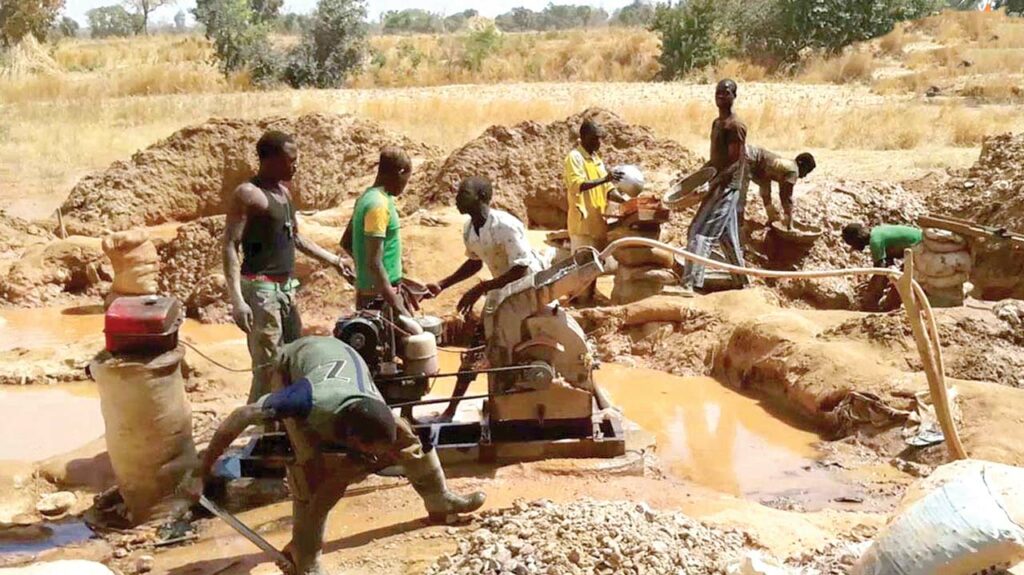The Lagos Chamber of Commerce and Industry (LCCI) has called on the federal government to reconsider its decision to ban mining activities and commercial motorcycles in the country.
Recall that the federal government had stated that it was considering a nationwide ban on commercial motorcycles, popularly known as okada, as well as mining activities in a bid to stem the rising insecurity across the country.
In a statement on Saturday, Chinyere Almona, director-general, LCCI, called for a reconsideration of the plan to avoid the consequences of undermining the business environment.
Almona said it was unacceptable to conclude that the mining ecosystem was a sponsor of banditry and terrorism, adding that investors are at the risk of losing their investments.
“Whilst it can be understood that criminals use motorcycles as means of mobility and escape from the security agencies, it is unacceptable to label the entire Nigerian mining ecosystem as sponsors of banditry and terrorism,” the statement reads.
”This looks like an attempt to blame all legitimate mining operators for the activities of bandits and terrorists operating in Nigeria.
“The Nigerian mining industry employs several thousands in the formal and informal economy of Nigeria. Specifically, the artisanal and small-scale mining eco-system accounts for at least 90 percent of the activities in the mining sector; from granite quarrying, and limestone mining, to base metals mining, limestone mining for cement production, sand mining, non-metallic industrial inputs for the paint and pharmaceutical industry, to mining of precious metals like gold; as well as gemstones mining.
“This announcement has further validated to foreign and local investors that it is unsafe for them to invest in Nigeria’s mining sector. Furthermore, the existing local investors who have secured loans to finance their mining projects across Nigeria are at the risk of losing their investments for several years.
“The proposal has further damaged the diversification plans of the federal government to pursue a non-oil exports-based economy. According to the CBN economic reports between 2015 to 2020; the total value of solid minerals exports within that period was $1.75 billion.
“Duly licensed mining companies should be clearly differentiated and distanced from the activities of bandits and terrorists whom the National Security Council have based their proposal upon. We need to enforce all the necessary laws and policies to guarantee the security of local and foreign investments in the solid minerals sector as well as ensure that investors get the best returns on their investments.”
LCCI further urged the government to employ measures such as licensing and information technology to address the issues.
“Government should empower the solid minerals and mining sector through the deployment of Geographic Information System (GIS), automation of application and processing of mining licenses, leases and permits all through a one-stop-shop platform. The Integrated Automation and Interactive Solid Minerals Portal (IAISMP) should truly be a go-to portal for real-time information on the sector,” it added
“We should also finalize the plan to build a national electronic geo-data archiving management system to be called the Nigerian Geo-Data Center at the Nigerian Geological Survey Agency (NGSA). All of these would make it easy to access information on mining by investors across the globe.
“We cannot afford to jeopardize the fortunes of mining in Nigeria with a blanket ban on mining activities when we should be able to isolate illegal miners and demobilize criminals from mining sites. We urge the government to reconsider ways to demobilize criminal activities from mining sites and create a safe environment where mining can thrive.”
